Samsung's gambit: Is dropping features and being more like Apple really that good of an idea?
This article may contain personal views and opinion from the author.
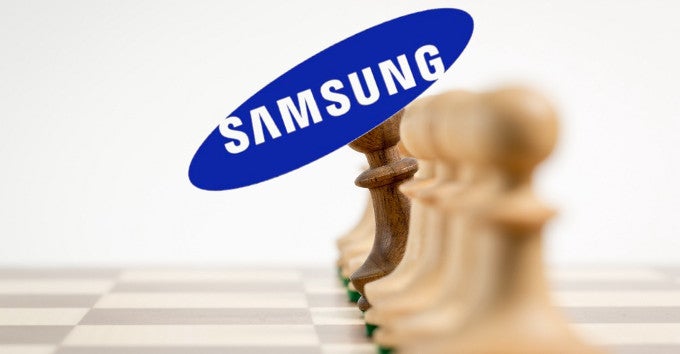
What kind of industry is this?
Now, before we begin, humor me here. I know that not everybody necessarily feels that Samsung is becoming more like Apple, nor am I saying that I have insider intel that tells me that the South Korea-based behemoth is intentionally mimicking its biggest rival. It's true, however, that whether intended or not, in effect that's exactly what's been going on as of late — Samsung has been rather explosive in its adoption of a 'less is more' philosophy, which is highly unusual for the company, and shedding features that have granted it a special place in many power users' hearts. In the process, the company has, instead, gone for a more Apple-esque approach, with a decisive focus on slim, industrial design, even when it demands usability sacrifices such as dropping the microSD card slot, fitting smaller juicers, and doing away with the battery door. And I worry that this may just prove to be a huge mistake for Samsung.
Funny how things work out
It's funny that I should get to write this piece, as I'm among them folks that actually like Samsung's new direction. A removable battery is probably one of the worst ways to entice me into a device, and expandable storage just doesn't tempt me since I don't really hold much information on my phone other than photos and apps. And when my photo collections start getting out of hand, I just cut and paste onto the cloud. This happens twice a year tops.
At the same time, I like the new, more stylish design of Samsung devices, and can finally even learn to to live with their new, less cluttered TouchWiz interface. By all means, I'm exactly the target consumer Samsung is going after with its new philosophy, yet I still think the company may be on its way to making a huge mistake. Why? Because I have no loyalty for Samsung whatsoever. While they might dazzle me into buying one of their devices right now, there's absolutely no guarantee I'll come back for another in a year's time. Those folks that simply have to have that microSD card slot? They would. Compare that to Apple and the fanaticism with which its followers eat up its products, and you know that Samsung is headed for trouble.
Samsung's biggest mistake deserves a round of applause
Know another thing that's funny? In a way, Samsung deserves quite the round of applause and respect for its latest actions, as they reveal just how much the company cares about feedback. Indeed, looking back, Samsung hardly has a challenger in terms of the assiduousness with which it's covering all its bases, every time, and that's only possible when heeding external feedback. So when it's announcement time, you can count on Samsung to have the best in store — the best in imaging, the best in processing and storage, and some would say the best even in even display tech (though PhoneArena's editorial opinion differs here).
This is doubly impressive with smartphone makers failing left and right, a shared feature of most of them being that they act as if they think they know better than their user base. This is a tricky and intriguing argument, but I'll leave it for later, and instead discuss a simple tech journalist's (mine) impressions of Samsung over the past few years, and just how much attention Samsung seems to have been paying to what us critics have been saying.
It started off with design — a traditionally weak point of Samsung smartphone manufacturing (I'm talking modern era here). No matter what HTC or Apple did, you could, until recently, count on Samsung to deliver a plastic-happy handset that is well put together, yes, but fails spectacularly in making snap purchases a real possibility. Whether we're talking the Galaxy S or Note lines, it was all the same. And me and my colleagues the world over never missed the chance to point this out. In a reviewer's mind back then, the thing that kept Samsung from delivering a device reasonably close to perfect was nothing more or less than their mundane exterior, though I'd argue that the incredibly heavy TouchWiz of old was a big problem, too. In any case, and though it took a while, Samsung listened — first with the Galaxy Alpha, and then with the Note 4. The culmination of Samsung's resolve to prove to naysayers that it, too, can do beautiful design are, of course, the super-thin Galaxy S6 and S6 edge and their derivatives — the Note5 and S6 edge+. I don't care what anyone says, comparing these four devices to the likes of the Galaxy S5, S4, or S III is simply ridiculous. Even at the time of their release, these were unsightly in comparison.
Of course, this new design philosophy was only the first sign that Samsung was taking a page off Apple's book, and the first time we saw the company deliberately sacrifice practicality — a Samsung specialty until recently — in favor of fashionable looks. Thickness went down, but so did battery capacity. Plastic was gone, but fragility was introduced. Signature features were axed and even TouchWiz was sent to fat camp.
Can the bet pay off?
In practice, what Samsung essentially chose to do — a notion cemented by the Note5's release — is cater to a new type of consumer (like me), who doesn't necessarily care about non-essential features like a removable battery. This, however, comes at the expense of the very group that not only bought your devices previously (ah, Innovator's Dillema!), but is also your most active evangelist. Techies. Power users. Nerds and fanboys. Call them what you like, but they're undeniably a fundamental part of the success matrix. And though they're a comparatively tiny portion of the entire user base, they have a disproportionately significant influence over the rest of the population, and can definitely set the wrong mood if left untended. As somebody who's a tiny part of the process of setting that mood, I'd argue that ignoring that extremely sensitive band of people is dangerous.
A practical company Samsung is, though, so I'm sure that they ran their numbers a hundred times before committing. I'm confident this is a well-considered and thoroughly calculated gambit. And, sure enough, it does make sense if you think about it — after all, this new group Samsung is trying to dazzle is much, much larger than the one it's been occupied pleasing so far. And while they may also look like the more forgiving bunch that is unlikely to get its panties in a twist if, next year, something like wireless charging is removed, I hold that they're far more unpredictable. Find that hard to believe? Just take a look at what's left of companies like BlackBerry, Nokia, and then the world of trouble that companies like HTC and Sony appear to be in today.
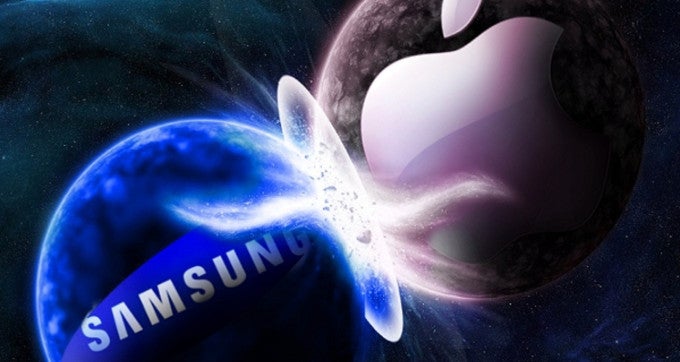
We love imagining a clash of titans type dynamic between Samsung and Apple, but in reality the two companies play two entirely different games. Samsung now seems determined to try Apple's.
As unpleasant as it may be for me to admit, all facts point to the obvious: there's only one company that is given free reign to set expectations and dictate what the next logical step is. And it's name is Apple, not Samsung. In fact, in many ways, Apple and Samsung aren't even bound by the same rules. As much as I'd like to say otherwise, for all intents and purposes, Samsung hasn't even been competing with Apple these past few years — it's been busy smashing heads within the Android universe. Yes, dominating, but still within the Android universe, which is unfortunately proving to be more and more unattractive from a maker's standpoint.
The above is very important, for a company competing with Android makers is bound by a different rule set — even one that is seemingly determined to challenge Apple — and Samsung is now disregarding those rules to do so, leaving itself exposed in the process. And if its gamble proves unsuccessful, forcing it to go back to its roots with its tail between its legs, it might just find its home territories suddenly contested by rivals that it thought defeated. For no matter how well it does in its fight with Cupertino, it'll have to consistently, relentlessly outdo other Android makers without any room for mistakes, for then what's to stop buyers on the fence to choose an LG phone? So one 'UltraPixel' fiasco (and I know many claim that the microSD/removable battery situation is a fiasco) and accounting will have to write off a fat chunk of inventory.
A more risk-averse scenario? By no mean a foolproof plan (or even realistic, given the pressure the company must be under from shareholders), but Samsung might want to re-consider the value in keeping the hardliners among its fan base happier whilst its busy trying to play Apple's game. After all, history teaches us that great empires first start crumbling from the inside. The only problem with that? The two — appeasing your core followers while trying to reach an entirely different demographic at the same time — in my opinion, are quite incompatible, and that's not likely to change, so godspeed, Samsung!
Follow us on Google News







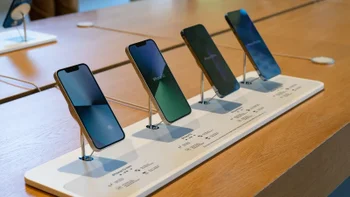

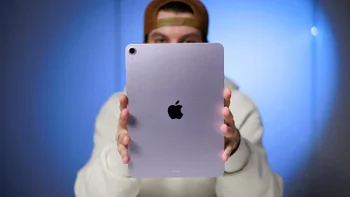

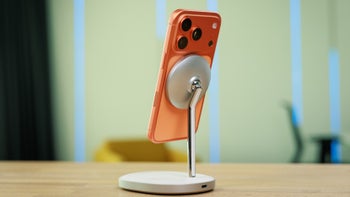
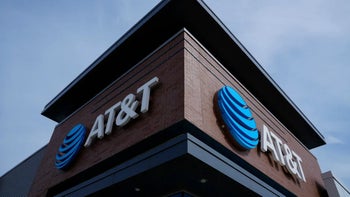
Things that are NOT allowed:
To help keep our community safe and free from spam, we apply temporary limits to newly created accounts: